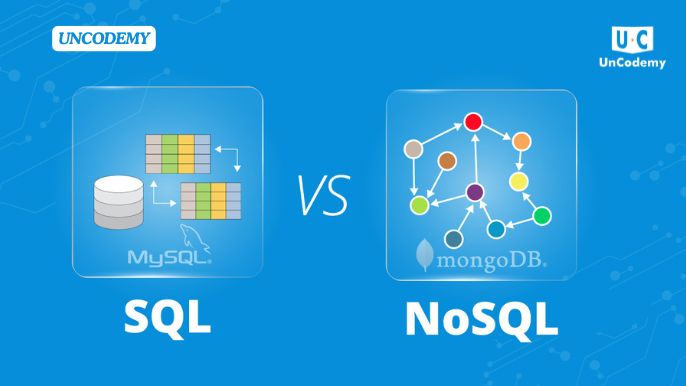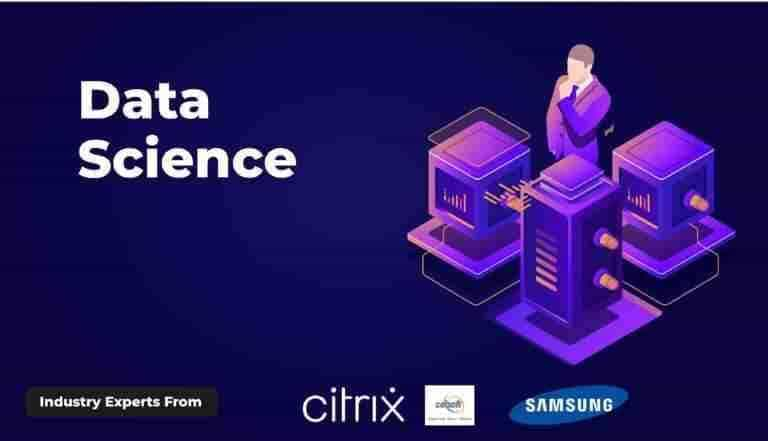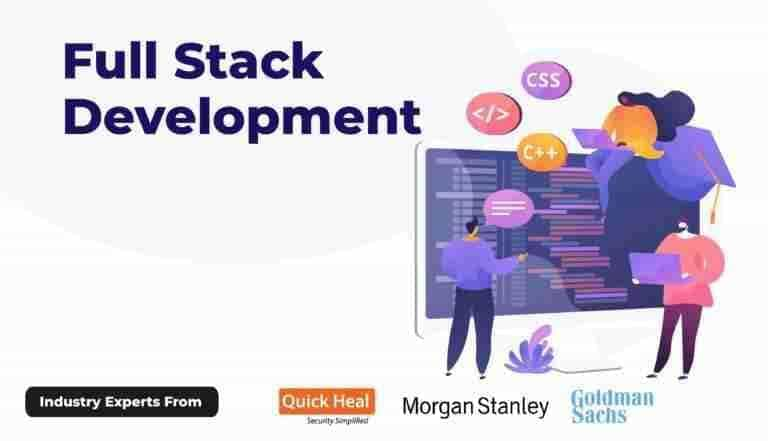MongoDB vs SQL: Which Database Is More Suitable for Developers



“Discover the key differences between MongoDB and SQL. Dive into our detailed guide to explore which database excels in flexibility, scalability, performance, and other important factors.”
Choosing the right database for your application is a crucial decision that affects how well your system scales, performs, and can be managed. In this battle between MongoDB and SQL databases, both options bring unique strengths to the table.
MongoDB, a popular NoSQL database, stands out for its flexibility. It doesn’t require a fixed schema, making it ideal for applications that handle large amounts of unstructured data or real-time web applications. Its ability to store data in JSON-like formats allows for easy updates and changes, which is especially useful for projects that need quick iterations or deal with complex data.
On the other hand, traditional SQL databases like MySQL, PostgreSQL, and Microsoft SQL Server have been the go-to choice for decades. They are well-suited for applications that require strong data consistency and structure. SQL databases follow a predefined schema, making them perfect for relational data and situations where data integrity is a priority.
This article takes a closer look at the pros and cons of both MongoDB and SQL databases. We’ll explore factors like flexibility, scalability, performance, and ease of management, so developers can make a well-informed decision based on the needs of their specific projects. Whether you’re building a real-time app, working with big data, or handling complex transactions, understanding the strengths and weaknesses of each database will help you choose the right tool for the job.
MongoDB is a popular, open-source NoSQL database known for its flexibility and scalability. Unlike traditional databases that organize data in tables and rows, MongoDB uses a document-based structure. This means it stores data in JSON-like documents, where each document can have different fields. This flexibility makes it a great choice for applications that need to handle complex, changing, or large amounts of data.
Characteristics of MongoDB:
These features make MongoDB an excellent choice for applications dealing with large, varied, or constantly changing data. It’s commonly used for big data, content management systems, mobile apps, social media platforms, and many other modern applications. MongoDB’s flexibility and ability to scale quickly make it ideal for developers looking to build fast and reliable applications.
SQL, which stands for Structured Query Language, is a programming language used to manage and work with relational databases. Developed in the 1970s, SQL is designed to handle data stored in tables, where each table contains rows and columns. SQL is used to create, manage, and retrieve data from these databases, making it essential for organizing structured data and performing complex queries.
Characteristics of SQL and relational databases:
SQL is widely used in applications where structured data management, reliable transactions, and complex queries are critical. Common use cases include banking systems, enterprise resource planning (ERP) systems, and business applications where accuracy, data consistency, and robust querying are essential. SQL’s ability to handle complex relationships and maintain data integrity makes it the go-to choice for many developers and organizations.
Both SQL and MongoDB are powerful tools for managing databases, but they differ significantly in their structure, flexibility, scalability, and use cases. Here’s a breakdown of these differences:
Data Structure:
Schema Flexibility:
Scalability:
Query Language:
Transactions:
Performance and Use Cases:
Architecture:
As you dive deeper into understanding the differences between MongoDB and SQL, it’s essential to expand your skills in both NoSQL and SQL databases to become a proficient full-stack developer. A solid grasp of both database types allows you to tackle a wide range of projects, whether it’s building scalable applications with MongoDB or handling complex queries with SQL. To further enhance your skills in both front-end and back-end technologies, consider taking a comprehensive full stack development course. Mastering the integration of databases with modern frameworks and tools will empower you to build robust, dynamic applications.
Comparison between MongoDB and SQL (MySQL)
| Feature | MongoDB | MySQL |
|---|---|---|
| Database Type | NoSQL document database | Relational database management system (RDBMS) |
| Data Model | Document-oriented, storing data in JSON-like documents (BSON) | Table-oriented, storing data in rows and columns |
| Schema Flexibility | Schema-less, documents within the same collection can vary | Schema-rigid, requires predefined schema and data structure |
| Query Language | Uses MongoDB Query Language (MQL) | Uses Structured Query Language (SQL) |
| Scalability | Horizontally scalable, supports sharding | Primarily vertically scalable, though horizontal scaling is possible with more complexity |
| Transactions | Supports multi-document transactions, but less extensive than SQL | Strong support for complex transactions with ACID compliance |
| Indexing | Supports indexing on any document field | Supports indexing, primarily on table columns |
| Use Cases | Flexible schema, big data, content management, real-time analytics | Complex queries, strong data integrity, financial & business apps |
| Consistency Model | Eventual consistency (stronger consistency in recent versions) | Strong consistency |
| Server Architecture | Distributed environments, easy to add more servers | Single server/master-slave; clustering possible but complex |
| Performance | High throughput with large, complex, semi-structured data | Excellent with transactional data & strict relationships |
Conclusion
The decision between MongoDB and SQL databases largely hinges on the specific needs of your application. MongoDB is ideal for projects that require flexibility, scalability, and fast performance, particularly when working with large volumes of data. On the other hand, SQL databases are the go-to choice for applications that need complex transactions and strict data integrity, making them essential for industries where precision and reliability are key.
When selecting the right database, it’s crucial to consider both your current needs and the potential growth of your application. By understanding the unique advantages and limitations of MongoDB and SQL, developers can make informed decisions that will enhance the efficiency, scalability, and long-term success of their applications.
FAQs: –
1. What is the main difference between MongoDB and SQL databases?
MongoDB is a NoSQL database that uses a document-oriented model and offers flexibility with schema-less design, making it suitable for large, dynamic datasets. SQL databases, on the other hand, use a structured table model with fixed schemas, ideal for applications that require complex queries and strong data integrity.
2. Which database is better for scalability, MongoDB or SQL?
MongoDB excels in horizontal scalability, allowing it to distribute data across multiple servers to handle large-scale deployments. SQL databases typically scale vertically (by upgrading hardware), though newer versions are starting to support some forms of horizontal scaling.
3. When should I choose MongoDB over SQL?
Choose MongoDB when your application needs high flexibility, fast performance, and the ability to handle large volumes of unstructured or semi-structured data. It’s a great option for real-time analytics, content management systems, and applications requiring high write loads.
4. Can MongoDB handle transactions like SQL?
While MongoDB traditionally supports single-document atomic transactions, recent versions have introduced multi-document transactions, but they are generally more limited compared to SQL databases, which have strong support for complex transactions and ACID properties.
5. Is MongoDB suitable for applications with complex queries?
MongoDB is excellent for handling large datasets with simple to moderate queries, but SQL databases are better for applications that require complex queries involving multiple tables, as they are optimized for relational data and advanced querying with SQL.
6. What are the use cases for SQL databases?
SQL databases are ideal for applications that need precise data relationships, such as financial software, enterprise resource planning (ERP) systems, and inventory management systems. They are also essential for applications requiring strong data integrity and complex transaction processing.
Personalized learning paths with interactive materials and progress tracking for optimal learning experience.
Explore LMSCreate professional, ATS-optimized resumes tailored for tech roles with intelligent suggestions.
Build ResumeDetailed analysis of how your resume performs in Applicant Tracking Systems with actionable insights.
Check ResumeAI analyzes your code for efficiency, best practices, and bugs with instant feedback.
Try Code ReviewPractice coding in 20+ languages with our cloud-based compiler that works on any device.
Start Coding TRENDING
TRENDING BESTSELLER
BESTSELLER BESTSELLER
BESTSELLER TRENDING
TRENDING HOT
HOT BESTSELLER
BESTSELLER HOT
HOT BESTSELLER
BESTSELLER BESTSELLER
BESTSELLER HOT
HOT POPULAR
POPULAR